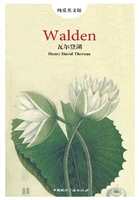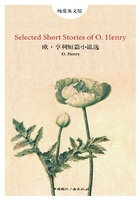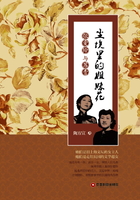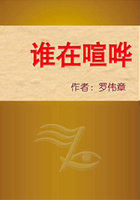The Internal Prosperity in the Age of the Antonines
Part I
It is not alone by the rapidity, or extent of conquest, that we should estimate the greatness of Rome. The sovereign of the Russian deserts commands a larger portion of the globe. In the seventh summer after his passage of the Hellespont, Alexander erected the Macedonian trophies on the banks of the Hyphasis. Within less than a century, the irresistible Zingis, and the Mogul princes of his race, spread their cruel devastations and transient empire from the Sea of China, to the confines of Egypt and Germany. But the firm edifice of Roman power was raised and preserved by the wisdom of ages. The obedient provinces of Trajan and the Antonines were united by laws, and adorned by arts. They might occasionally suffer from the partial abuse of delegated authority; but the general principle of government was wise, simple, and beneficent. They enjoyed the religion of their ancestors, whilst in civil honors and advantages they were exalted, by just degrees, to an equality with their conquerors.
I. The policy of the emperors and the senate, as far as it concerned religion, was happily seconded by the reflections of the enlightened, and by the habits of the superstitious, part of their subjects. The various modes of worship, which prevailed in the Roman world, were all considered by the people, as equally true; by the philosopher, as equally false; and by the magistrate, as equally useful. And thus toleration produced not only mutual indulgence, but even religious concord.
The superstition of the people was not imbittered by any mixture of theological rancor; nor was it confined by the chains of any speculative system. The devout polytheist, though fondly attached to his national rites, admitted with implicit faith the different religions of the earth. Fear, gratitude, and curiosity, a dream or an omen, a singular disorder, or a distant journey, perpetually disposed him to multiply the articles of his belief, and to enlarge the list of his protectors. The thin texture of the Pagan mythology was interwoven with various but not discordant materials. As soon as it was allowed that sages and heroes, who had lived or who had died for the benefit of their country, were exalted to a state of power and immortality, it was universally confessed, that they deserved, if not the adoration, at least the reverence, of all mankind. The deities of a thousand groves and a thousand streams possessed, in peace, their local and respective influence; nor could the Romans who deprecated the wrath of the Tiber, deride the Egyptian who presented his offering to the beneficent genius of the Nile. The visible powers of nature, the planets, and the elements were the same throughout the universe. The invisible governors of the moral world were inevitably cast in a similar mould of fiction and allegory. Every virtue, and even vice, acquired its divine representative; every art and profession its patron, whose attributes, in the most distant ages and countries, were uniformly derived from the character of their peculiar votaries. A republic of gods of such opposite tempers and interests required, in every system, the moderating hand of a supreme magistrate, who, by the progress of knowledge and flattery, was gradually invested with the sublime perfections of an Eternal Parent, and an Omnipotent Monarch. Such was the mild spirit of antiquity, that the nations were less attentive to the difference, than to the resemblance, of their religious worship. The Greek, the Roman, and the Barbarian, as they met before their respective altars, easily persuaded themselves, that under various names, and with various ceremonies, they adored the same deities. The elegant mythology of Homer gave a beautiful, and almost a regular form, to the polytheism of the ancient world.
The philosophers of Greece deduced their morals from the nature of man, rather than from that of God. They meditated, however, on the Divine Nature, as a very curious and important speculation; and in the profound inquiry, they displayed the strength and weakness of the human understanding. Of the four most celebrated schools, the Stoics and the Platonists endeavored to reconcile the jaring interests of reason and piety. They have left us the most sublime proofs of the existence and perfections of the first cause; but, as it was impossible for them to conceive the creation of matter, the workman in the Stoic philosophy was not sufficiently distinguished from the work; whilst, on the contrary, the spiritual God of Plato and his disciples resembled an idea, rather than a substance. The opinions of the Academics and Epicureans were of a less religious cast; but whilst the modest science of the former induced them to doubt, the positive ignorance of the latter urged them to deny, the providence of a Supreme Ruler. The spirit of inquiry, prompted by emulation, and supported by freedom, had divided the public teachers of philosophy into a variety of contending sects; but the ingenious youth, who, from every part, resorted to Athens, and the other seats of learning in the Roman empire, were alike instructed in every school to reject and to despise the religion of the multitude. How, indeed, was it possible that a philosopher should accept, as divine truths, the idle tales of the poets, and the incoherent traditions of antiquity; or that he should adore, as gods, those imperfect beings whom he must have despised, as men? Against such unworthy adversaries, Cicero condescended to employ the arms of reason and eloquence; but the satire of Lucian was a much more adequate, as well as more efficacious, weapon. We may be well assured, that a writer, conversant with the world, would never have ventured to expose the gods of his country to public ridicule, had they not already been the objects of secret contempt among the polished and enlightened orders of society.
Notwithstanding the fashionable irreligion which prevailed in the age of the Antonines, both the interest of the priests and the credulity of the people were sufficiently respected. In their writings and conversation, the philosophers of antiquity asserted the independent dignity of reason; but they resigned their actions to the commands of law and of custom. Viewing, with a smile of pity and indulgence, the various errors of the vulgar, they diligently practised the ceremonies of their fathers, devoutly frequented the temples of the gods; and sometimes condescending to act a part on the theatre of superstition, they concealed the sentiments of an atheist under the sacerdotal robes. Reasoners of such a temper were scarcely inclined to wrangle about their respective modes of faith, or of worship. It was indifferent to them what shape the folly of the multitude might choose to assume; and they approached with the same inward contempt, and the same external reverence, the altars of the Libyan, the Olympian, or the Capitoline Jupiter.
It is not easy to conceive from what motives a spirit of persecution could introduce itself into the Roman councils. The magistrates could not be actuated by a blind, though honest bigotry, since the magistrates were themselves philosophers; and the schools of Athens had given laws to the senate. They could not be impelled by ambition or avarice, as the temporal and ecclesiastical powers were united in the same hands. The pontiffs were chosen among the most illustrious of the senators; and the office of Supreme Pontiff was constantly exercised by the emperors themselves. They knew and valued the advantages of religion, as it is connected with civil government. They encouraged the public festivals which humanize the manners of the people. They managed the arts of divination as a convenient instrument of policy; and they respected, as the firmest bond of society, the useful persuasion, that, either in this or in a future life, the crime of perjury is most assuredly punished by the avenging gods. But whilst they acknowledged the general advantages of religion, they were convinced that the various modes of worship contributed alike to the same salutary purposes; and that, in every country, the form of superstition, which had received the sanction of time and experience, was the best adapted to the climate, and to its inhabitants. Avarice and taste very frequently despoiled the vanquished nations of the elegant statues of their gods, and the rich ornaments of their temples; but, in the exercise of the religion which they derived from their ancestors, they uniformly experienced the indulgence, and even protection, of the Roman conquerors. The province of Gaul seems, and indeed only seems, an exception to this universal toleration. Under the specious pretext of abolishing human sacrifices, the emperors Tiberius and Claudius suppressed the dangerous power of the Druids: but the priests themselves, their gods and their altars, subsisted in peaceful obscurity till the final destruction of Paganism.
Rome, the capital of a great monarchy, was incessantly filled with subjects and strangers from every part of the world, who all introduced and enjoyed the favorite superstitions of their native country. Every city in the empire was justified in maintaining the purity of its ancient ceremonies; and the Roman senate, using the common privilege, sometimes interposed, to check this inundation of foreign rites. The Egyptian superstition, of all the most contemptible and abject, was frequently prohibited: the temples of Serapis and Isis demolished, and their worshippers banished from Rome and Italy. But the zeal of fanaticism prevailed over the cold and feeble efforts of policy. The exiles returned, the proselytes multiplied, the temples were restored with increasing splendor, and Isis and Serapis at length assumed their place among the Roman Deities. Nor was this indulgence a departure from the old maxims of government. In the purest ages of the commonwealth, Cybele and Aesculapius had been invited by solemn embassies; and it was customary to tempt the protectors of besieged cities, by the promise of more distinguished honors than they possessed in their native country. Rome gradually became the common temple of her subjects; and the freedom of the city was bestowed on all the gods of mankind.
II. The narrow policy of preserving, without any foreign mixture, the pure blood of the ancient citizens, had checked the fortune, and hastened the ruin, of Athens and Sparta. The aspiring genius of Rome sacrificed vanity to ambition, and deemed it more prudent, as well as honorable, to adopt virtue and merit for her own wheresoever they were found, among slaves or strangers, enemies or barbarians. During the most flourishing aera of the Athenian commonwealth, the number of citizens gradually decreased from about thirty to twenty-one thousand. If, on the contrary, we study the growth of the Roman republic, we may discover, that, notwithstanding the incessant demands of wars and colonies, the citizens, who, in the first census of Servius Tullius, amounted to no more than eighty-three thousand, were multiplied, before the commencement of the social war, to the number of four hundred and sixty-three thousand men, able to bear arms in the service of their country. When the allies of Rome claimed an equal share of honors and privileges, the senate indeed preferred the chance of arms to an ignominious concession. The Samnites and the Lucanians paid the severe penalty of their rashness; but the rest of the Italian states, as they successively returned to their duty, were admitted into the bosom of the republic, and soon contributed to the ruin of public freedom. Under a democratical government, the citizens exercise the powers of sovereignty; and those powers will be first abused, and afterwards lost, if they are committed to an unwieldy multitude. But when the popular assemblies had been suppressed by the administration of the emperors, the conquerors were distinguished from the vanquished nations, only as the first and most honorable order of subjects; and their increase, however rapid, was no longer exposed to the same dangers. Yet the wisest princes, who adopted the maxims of Augustus, guarded with the strictest care the dignity of the Roman name, and diffused the freedom of the city with a prudent liberality.
Part II
Till the privileges of Romans had been progressively extended to all the inhabitants of the empire, an important distinction was preserved between Italy and the provinces. The former was esteemed the centre of public unity, and the firm basis of the constitution. Italy claimed the birth, or at least the residence, of the emperors and the senate. The estates of the Italians were exempt from taxes, their persons from the arbitrary jurisdiction of governors. Their municipal corporations, formed after the perfect model of the capital, were intrusted, under the immediate eye of the supreme power, with the execution of the laws. From the foot of the Alps to the extremity of Calabria, all the natives of Italy were born citizens of Rome. Their partial distinctions were obliterated, and they insensibly coalesced into one great nation, united by language, manners, and civil institutions, and equal to the weight of a powerful empire. The republic gloried in her generous policy, and was frequently rewarded by the merit and services of her adopted sons. Had she always confined the distinction of Romans to the ancient families within the walls of the city, that immortal name would have been deprived of some of its noblest ornaments. Virgil was a native of Mantua; Horace was inclined to doubt whether he should call himself an Apulian or a Lucanian; it was in Padua that an historian was found worthy to record the majestic series of Roman victories. The patriot family of the Catos emerged from Tusculum; and the little town of Arpinum claimed the double honor of producing Marius and Cicero, the former of whom deserved, after Romulus and Camillus, to be styled the Third Founder of Rome; and the latter, after saving his country from the designs of Catiline, enabled her to contend with Athens for the palm of eloquence.
The provinces of the empire (as they have been described in the preceding chapter) were destitute of any public force, or constitutional freedom. In Etruria, in Greece, and in Gaul, it was the first care of the senate to dissolve those dangerous confederacies, which taught mankind that, as the Roman arms prevailed by division, they might be resisted by union. Those princes, whom the ostentation of gratitude or generosity permitted for a while to hold a precarious sceptre, were dismissed from their thrones, as soon as they had per formed their appointed task of fashioning to the yoke the vanquished nations. The free states and cities which had embraced the cause of Rome were rewarded with a nominal alliance, and insensibly sunk into real servitude. The public authority was every where exercised by the ministers of the senate and of the emperors, and that authority was absolute, and without control. But the same salutary maxims of government, which had secured the peace and obedience of Italy were extended to the most distant conquests. A nation of Romans was gradually formed in the provinces, by the double expedient of introducing colonies, and of admitting the most faithful and deserving of the provincials to the freedom of Rome.
"Wheresoever the Roman conquers, he inhabits," is a very just observation of Seneca, confirmed by history and experience. The natives of Italy, allured by pleasure or by interest, hastened to enjoy the advantages of victory; and we may remark, that, about forty years after the reduction of Asia, eighty thousand Romans were massacred in one day, by the cruel orders of Mithridates. These voluntary exiles were engaged, for the most part, in the occupations of commerce, agriculture, and the farm of the revenue. But after the legions were rendered permanent by the emperors, the provinces were peopled by a race of soldiers; and the veterans, whether they received the reward of their service in land or in money, usually settled with their families in the country, where they had honorably spent their youth. Throughout the empire, but more particularly in the western parts, the most fertile districts, and the most convenient situations, were reserved for the establishment of colonies; some of which were of a civil, and others of a military nature. In their manners and internal policy, the colonies formed a perfect representation of their great parent; and they were soon endeared to the natives by the ties of friendship and alliance, they effectually diffused a reverence for the Roman name, and a desire, which was seldom disappointed, of sharing, in due time, its honors and advantages. The municipal cities insensibly equalled the rank and splendor of the colonies; and in the reign of Hadrian, it was disputed which was the preferable condition, of those societies which had issued from, or those which had been received into, the bosom of Rome. The right of Latium, as it was called, conferred on the cities to which it had been granted, a more partial favor. The magistrates only, at the expiration of their office, assumed the quality of Roman citizens; but as those offices were annual, in a few years they circulated round the principal families. Those of the provincials who were permitted to bear arms in the legions; those who exercised any civil employment; all, in a word, who performed any public service, or displayed any personal talents, were rewarded with a present, whose value was continually diminished by the increasing liberality of the emperors. Yet even, in the age of the Antonines, when the freedom of the city had been bestowed on the greater number of their subjects, it was still accompanied with very solid advantages. The bulk of the people acquired, with that title, the benefit of the Roman laws, particularly in the interesting articles of marriage, testaments, and inheritances; and the road of fortune was open to those whose pretensions were seconded by favor or merit. The grandsons of the Gauls, who had besieged Julius Caesar in Alcsia, commanded legions, governed provinces, and were admitted into the senate of Rome. Their ambition, instead of disturbing the tranquillity of the state, was intimately connected with its safety and greatness.
So sensible were the Romans of the influence of language over national manners, that it was their most serious care to extend, with the progress of their arms, the use of the Latin tongue. The ancient dialects of Italy, the Sabine, the Etruscan, and the Venetian, sunk into oblivion; but in the provinces, the east was less docile than the west to the voice of its victorious preceptors. This obvious difference marked the two portions of the empire with a distinction of colors, which, though it was in some degree concealed during the meridian splendor of prosperity, became gradually more visible, as the shades of night descended upon the Roman world. The western countries were civilized by the same hands which subdued them. As soon as the barbarians were reconciled to obedience, their minds were open to any new impressions of knowledge and politeness. The language of Virgil and Cicero, though with some inevitable mixture of corruption, was so universally adopted in Africa, Spain, Gaul Britain, and Pannonia, that the faint traces of the Punic or Celtic idioms were preserved only in the mountains, or among the peasants. Education and study insensibly inspired the natives of those countries with the sentiments of Romans; and Italy gave fashions, as well as laws, to her Latin provincials. They solicited with more ardor, and obtained with more facility, the freedom and honors of the state; supported the national dignity in letters and in arms; and at length, in the person of Trajan, produced an emperor whom the Scipios would not have disowned for their countryman. The situation of the Greeks was very different from that of the barbarians. The former had been long since civilized and corrupted. They had too much taste to relinquish their language, and too much vanity to adopt any foreign institutions. Still preserving the prejudices, after they had lost the virtues, of their ancestors, they affected to despise the unpolished manners of the Roman conquerors, whilst they were compelled to respect their superior wisdom and power. Nor was the influence of the Grecian language and sentiments confined to the narrow limits of that once celebrated country. Their empire, by the progress of colonies and conquest, had been diffused from the Adriatic to the Euphrates and the Nile. Asia was covered with Greek cities, and the long reign of the Macedonian kings had introduced a silent revolution into Syria and Egypt. In their pompous courts, those princes united the elegance of Athens with the luxury of the East, and the example of the court was imitated, at an humble distance, by the higher ranks of their subjects. Such was the general division of the Roman empire into the Latin and Greek languages. To these we may add a third distinction for the body of the natives in Syria, and especially in Egypt, the use of their ancient dialects, by secluding them from the commerce of mankind, checked the improvements of those barbarians. The slothful effeminacy of the former exposed them to the contempt, the sullen ferociousness of the latter excited the aversion, of the conquerors. Those nations had submitted to the Roman power, but they seldom desired or deserved the freedom of the city: and it was remarked, that more than two hundred and thirty years elapsed after the ruin of the Ptolemies, before an Egyptian was admitted into the senate of Rome.
It is a just though trite observation, that victorious Rome was herself subdued by the arts of Greece. Those immortal writers who still command the admiration of modern Europe, soon became the favorite object of study and imitation in Italy and the western provinces. But the elegant amusements of the Romans were not suffered to interfere with their sound maxims of policy. Whilst they acknowledged the charms of the Greek, they asserted the dignity of the Latin tongue, and the exclusive use of the latter was inflexibly maintained in the administration of civil as well as military government. The two languages exercised at the same time their separate jurisdiction throughout the empire: the former, as the natural idiom of science; the latter, as the legal dialect of public transactions. Those who united letters with business were equally conversant with both; and it was almost impossible, in any province, to find a Roman subject, of a liberal education, who was at once a stranger to the Greek and to the Latin language.
It was by such institutions that the nations of the empire insensibly melted away into the Roman name and people. But there still remained, in the centre of every province and of every family, an unhappy condition of men who endured the weight, without sharing the benefits, of society. In the free states of antiquity, the domestic slaves were exposed to the wanton rigor of despotism. The perfect settlement of the Roman empire was preceded by ages of violence and rapine. The slaves consisted, for the most part, of barbarian captives, taken in thousands by the chance of war, purchased at a vile price, accustomed to a life of independence, and impatient to break and to revenge their fetters. Against such internal enemies, whose desperate insurrections had more than once reduced the republic to the brink of destruction, the most severe regulations, and the most cruel treatment, seemed almost justified by the great law of self-preservation. But when the principal nations of Europe, Asia, and Africa were united under the laws of one sovereign, the source of foreign supplies flowed with much less abundance, and the Romans were reduced to the milder but more tedious method of propagation. In their numerous families, and particularly in their country estates, they encouraged the marriage of their slaves. The sentiments of nature, the habits of education, and the possession of a dependent species of property, contributed to alleviate the hardships of servitude. The existence of a slave became an object of greater value, and though his happiness still depended on the temper and circumstances of the master, the humanity of the latter, instead of being restrained by fear, was encouraged by the sense of his own interest. The progress of manners was accelerated by the virtue or policy of the emperors; and by the edicts of Hadrian and the Antonines, the protection of the laws was extended to the most abject part of mankind. The jurisdiction of life and death over the slaves, a power long exercised and often abused, was taken out of private hands, and reserved to the magistrates alone. The subterraneous prisons were abolished; and, upon a just complaint of intolerable treatment, the injured slave obtained either his deliverance, or a less cruel master.
In general, this passage of Gibbon on slavery, is full, not only of blamable indifference, but of an exaggeration of impartiality which resembles dishonesty. He endeavors to extenuate all that is appalling in the condition and treatment of the slaves; he would make us consider those cruelties as possibly "justified by necessity." He then describes, with minute accuracy, the slightest mitigations of their deplorable condition; he attributes to the virtue or the policy of the emperors the progressive amelioration in the lot of the slaves; and he passes over in silence the most influential cause, that which, after rendering the slaves less miserable, has contributed at length entirely to enfranchise them from their sufferings and their chains,—Christianity. It would be easy to accumulate the most frightful, the most agonizing details, of the manner in which the Romans treated their slaves; whole works have been devoted to the description. I content myself with referring to them. Some reflections of Robertson, taken from the discourse already quoted, will make us feel that Gibbon, in tracing the mitigation of the condition of the slaves, up to a period little later than that which witnessed the establishment of Christianity in the world, could not have avoided the acknowledgment of the influence of that beneficent cause, if he had not already determined not to speak of it.
"Upon establishing despotic government in the Roman empire, domestic tyranny rose, in a short time, to an astonishing height. In that rank soil, every vice, which power nourishes in the great, or oppression engenders in the mean, thrived and grew up apace. It is not the authority of any single detached precept in the gospel, but the spirit and genius of the Christian religion, more powerful than any particular command, which hath abolished the practice of slavery throughout the world. The temper which Christianity inspired was mild and gentle; and the doctrines it taught added such dignity and lustre to human nature, as rescued it from the dishonorable servitude into which it was sunk."
It is in vain, then, that Gibbon pretends to attribute solely to the desire of keeping up the number of slaves, the milder conduct which the Romans began to adopt in their favor at the time of the emperors. This cause had hitherto acted in an opposite direction; how came it on a sudden to have a different influence? "The masters," he says, "encouraged the marriage of their slaves; … the sentiments of nature, the habits of education, contributed to alleviate the hardships of servitude." The children of slaves were the property of their master, who could dispose of or alienate them like the rest of his property. Is it in such a situation, with such notions, that the sentiments of nature unfold themselves, or habits of education become mild and peaceful? We must not attribute to causes inadequate or altogether without force, effects which require to explain them a reference to more influential causes; and even if these slighter causes had in effect a manifest influence, we must not forget that they are themselves the effect of a primary, a higher, and more extensive cause, which, in giving to the mind and to the character a more disinterested and more humane bias, disposed men to second or themselves to advance, by their conduct, and by the change of manners, the happy results which it tended to produce.—G.
I have retained the whole of M. Guizot's note, though, in his zeal for the invaluable blessings of freedom and Christianity, he has done Gibbon injustice. The condition of the slaves was undoubtedly improved under the emperors. What a great authority has said, "The condition of a slave is better under an arbitrary than under a free government," (Smith's Wealth of Nations, iv. 7,) is, I believe, supported by the history of all ages and nations. The protecting edicts of Hadrian and the Antonines are historical facts, and can as little be attributed to the influence of Christianity, as the milder language of heathen writers, of Seneca, (particularly Ep. 47,) of Pliny, and of Plutarch. The latter influence of Christianity is admitted by Gibbon himself. The subject of Roman slavery has recently been investigated with great diligence in a very modest but valuable volume, by Wm. Blair, Esq., Edin. 1833. May we be permitted, while on the subject, to refer to the most splendid passage extant of Mr. Pitt's eloquence, the description of the Roman slave-dealer. on the shores of Britain, condemning the island to irreclaimable barbarism, as a perpetual and prolific nursery of slaves? Speeches, vol. ii. p. 80.
Gibbon, it should be added, was one of the first and most consistent opponents of the African slave-trade. (See Hist. ch. xxv. and Letters to Lor Sheffield, Misc. Works)
Hope, the best comfort of our imperfect condition, was not denied to the Roman slave; and if he had any opportunity of rendering himself either useful or agreeable, he might very naturally expect that the diligence and fidelity of a few years would be rewarded with the inestimable gift of freedom. The benevolence of the master was so frequently prompted by the meaner suggestions of vanity and avarice, that the laws found it more necessary to restrain than to encourage a profuse and undistinguishing liberality, which might degenerate into a very dangerous abuse. It was a maxim of ancient jurisprudence, that a slave had not any country of his own; he acquired with his liberty an admission into the political society of which his patron was a member. The consequences of this maxim would have prostituted the privileges of the Roman city to a mean and promiscuous multitude. Some seasonable exceptions were therefore provided; and the honorable distinction was confined to such slaves only as, for just causes, and with the approbation of the magistrate, should receive a solemn and legal manumission. Even these chosen freedmen obtained no more than the private rights of citizens, and were rigorously excluded from civil or military honors. Whatever might be the merit or fortune of their sons, they likewise were esteemed unworthy of a seat in the senate; nor were the traces of a servile origin allowed to be completely obliterated till the third or fourth generation. Without destroying the distinction of ranks, a distant prospect of freedom and honors was presented, even to those whom pride and prejudice almost disdained to number among the human species.
The number of subjects who acknowledged the laws of Rome, of citizens, of provincials, and of slaves, cannot now be fixed with such a degree of accuracy, as the importance of the object would deserve. We are informed, that when the Emperor Claudius exercised the office of censor, he took an account of six millions nine hundred and forty-five thousand Roman citizens, who, with the proportion of women and children, must have amounted to about twenty millions of souls. The multitude of subjects of an inferior rank was uncertain and fluctuating. But, after weighing with attention every circumstance which could influence the balance, it seems probable that there existed, in the time of Claudius, about twice as many provincials as there were citizens, of either sex, and of every age; and that the slaves were at least equal in number to the free inhabitants of the Roman world. The total amount of this imperfect calculation would rise to about one hundred and twenty millions of persons; a degree of population which possibly exceeds that of modern Europe, and forms the most numerous society that has ever been united under the same system of government.
Part III
Domestic peace and union were the natural consequences of the moderate and comprehensive policy embraced by the Romans. If we turn our eyes towards the monarchies of Asia, we shall behold despotism in the centre, and weakness in the extremities; the collection of the revenue, or the administration of justice, enforced by the presence of an army; hostile barbarians established in the heart of the country, hereditary satraps usurping the dominion of the provinces, and subjects inclined to rebellion, though incapable of freedom. But the obedience of the Roman world was uniform, voluntary, and permanent. The vanquished nations, blended into one great people, resigned the hope, nay, even the wish, of resuming their independence, and scarcely considered their own existence as distinct from the existence of Rome. The established authority of the emperors pervaded without an effort the wide extent of their dominions, and was exercised with the same facility on the banks of the Thames, or of the Nile, as on those of the Tyber. The legions were destined to serve against the public enemy, and the civil magistrate seldom required the aid of a military force. In this state of general security, the leisure, as well as opulence, both of the prince and people, were devoted to improve and to adorn the Roman empire.
Among the innumerable monuments of architecture constructed by the Romans, how many have escaped the notice of history, how few have resisted the ravages of time and barbarism! And yet, even the majestic ruins that are still scattered over Italy and the provinces, would be sufficient to prove that those countries were once the seat of a polite and powerful empire. Their greatness alone, or their beauty, might deserve our attention: but they are rendered more interesting, by two important circumstances, which connect the agreeable history of the arts with the more useful history of human manners. Many of those works were erected at private expense, and almost all were intended for public benefit.
It is natural to suppose that the greatest number, as well as the most considerable of the Roman edifices, were raised by the emperors, who possessed so unbounded a command both of men and money. Augustus was accustomed to boast that he had found his capital of brick, and that he had left it of marble. The strict economy of Vespasian was the source of his magnificence. The works of Trajan bear the stamp of his genius. The public monuments with which Hadrian adorned every province of the empire, were executed not only by his orders, but under his immediate inspection. He was himself an artist; and he loved the arts, as they conduced to the glory of the monarch. They were encouraged by the Antonines, as they contributed to the happiness of the people. But if the emperors were the first, they were not the only architects of their dominions. Their example was universally imitated by their principal subjects, who were not afraid of declaring to the world that they had spirit to conceive, and wealth to accomplish, the noblest undertakings. Scarcely had the proud structure of the Coliseum been dedicated at Rome, before the edifices, of a smaller scale indeed, but of the same design and materials, were erected for the use, and at the expense, of the cities of Capua and Verona. The inscription of the stupendous bridge of Alcantara attests that it was thrown over the Tagus by the contribution of a few Lusitanian communities. When Pliny was intrusted with the government of Bithynia and Pontus, provinces by no means the richest or most considerable of the empire, he found the cities within his jurisdiction striving with each other in every useful and ornamental work, that might deserve the curiosity of strangers, or the gratitude of their citizens. It was the duty of the proconsul to supply their deficiencies, to direct their taste, and sometimes to moderate their emulation. The opulent senators of Rome and the provinces esteemed it an honor, and almost an obligation, to adorn the splendor of their age and country; and the influence of fashion very frequently supplied the want of taste or generosity. Among a crowd of these private benefactors, we may select Herodes Atticus, an Athenian citizen, who lived in the age of the Antonines. Whatever might be the motive of his conduct, his magnificence would have been worthy of the greatest kings.
The family of Herod, at least after it had been favored by fortune, was lineally descended from Cimon and Miltiades, Theseus and Cecrops, Aeacus and Jupiter. But the posterity of so many gods and heroes was fallen into the most abject state. His grandfather had suffered by the hands of justice, and Julius Atticus, his father, must have ended his life in poverty and contempt, had he not discovered an immense treasure buried under an old house, the last remains of his patrimony. According to the rigor of the law, the emperor might have asserted his claim, and the prudent Atticus prevented, by a frank confession, the officiousness of informers. But the equitable Nerva, who then filled the throne, refused to accept any part of it, and commanded him to use, without scruple, the present of fortune. The cautious Athenian still insisted, that the treasure was too considerable for a subject, and that he knew not how to use it. Abuse it then, replied the monarch, with a good-natured peevishness; for it is your own. Many will be of opinion, that Atticus literally obeyed the emperor's last instructions; since he expended the greatest part of his fortune, which was much increased by an advantageous marriage, in the service of the public. He had obtained for his son Herod the prefecture of the free cities of Asia; and the young magistrate, observing that the town of Troas was indifferently supplied with water, obtained from the munificence of Hadrian three hundred myriads of drachms, (about a hundred thousand pounds,) for the construction of a new aqueduct. But in the execution of the work, the charge amounted to more than double the estimate, and the officers of the revenue began to murmur, till the generous Atticus silenced their complaints, by requesting that he might be permitted to take upon himself the whole additional expense.
The ablest preceptors of Greece and Asia had been invited by liberal rewards to direct the education of young Herod. Their pupil soon became a celebrated orator, according to the useless rhetoric of that age, which, confining itself to the schools, disdained to visit either the Forum or the Senate.
He was honored with the consulship at Rome: but the greatest part of his life was spent in a philosophic retirement at Athens, and his adjacent villas; perpetually surrounded by sophists, who acknowledged, without reluctance, the superiority of a rich and generous rival. The monuments of his genius have perished; some considerable ruins still preserve the fame of his taste and munificence: modern travellers have measured the remains of the stadium which he constructed at Athens. It was six hundred feet in length, built entirely of white marble, capable of admitting the whole body of the people, and finished in four years, whilst Herod was president of the Athenian games. To the memory of his wife Regilla he dedicated a theatre, scarcely to be paralleled in the empire: no wood except cedar, very curiously carved, was employed in any part of the building. The Odeum, designed by Pericles for musical performances, and the rehearsal of new tragedies, had been a trophy of the victory of the arts over barbaric greatness; as the timbers employed in the construction consisted chiefly of the masts of the Persian vessels. Notwithstanding the repairs bestowed on that ancient edifice by a king of Cappadocia, it was again fallen to decay. Herod restored its ancient beauty and magnificence. Nor was the liberality of that illustrious citizen confined to the walls of Athens. The most splendid ornaments bestowed on the temple of Neptune in the Isthmus, a theatre at Corinth, a stadium at Delphi, a bath at Thermopylae, and an aqueduct at Canusium in Italy, were insufficient to exhaust his treasures. The people of Epirus, Thessaly, Euboea, Boeotia, and Peloponnesus, experienced his favors; and many inscriptions of the cities of Greece and Asia gratefully style Herodes Atticus their patron and benefactor.
In the commonwealths of Athens and Rome, the modest simplicity of private houses announced the equal condition of freedom; whilst the sovereignty of the people was represented in the majestic edifices designed to the public use; nor was this republican spirit totally extinguished by the introduction of wealth and monarchy. It was in works of national honor and benefit, that the most virtuous of the emperors affected to display their magnificence. The golden palace of Nero excited a just indignation, but the vast extent of ground which had been usurped by his selfish luxury was more nobly filled under the succeeding reigns by the Coliseum, the baths of Titus, the Claudian portico, and the temples dedicated to the goddess of Peace, and to the genius of Rome. These monuments of architecture, the property of the Roman people, were adorned with the most beautiful productions of Grecian painting and sculpture; and in the temple of Peace, a very curious library was open to the curiosity of the learned. At a small distance from thence was situated the Forum of Trajan. It was surrounded by a lofty portico, in the form of a quadrangle, into which four triumphal arches opened a noble and spacious entrance: in the centre arose a column of marble, whose height, of one hundred and ten feet, denoted the elevation of the hill that had been cut away. This column, which still subsists in its ancient beauty, exhibited an exact representation of the Dacian victories of its founder. The veteran soldier contemplated the story of his own campaigns, and by an easy illusion of national vanity, the peaceful citizen associated himself to the honors of the triumph. All the other quarters of the capital, and all the provinces of the empire, were embellished by the same liberal spirit of public magnificence, and were filled with amphi theatres, theatres, temples, porticoes, triumphal arches, baths and aqueducts, all variously conducive to the health, the devotion, and the pleasures of the meanest citizen. The last mentioned of those edifices deserve our peculiar attention. The boldness of the enterprise, the solidity of the execution, and the uses to which they were subservient, rank the aqueducts among the noblest monuments of Roman genius and power. The aqueducts of the capital claim a just preeminence; but the curious traveller, who, without the light of history, should examine those of Spoleto, of Metz, or of Segovia, would very naturally conclude that those provincial towns had formerly been the residence of some potent monarch. The solitudes of Asia and Africa were once covered with flourishing cities, whose populousness, and even whose existence, was derived from such artificial supplies of a perennial stream of fresh water.
We have computed the inhabitants, and contemplated the public works, of the Roman empire. The observation of the number and greatness of its cities will serve to confirm the former, and to multiply the latter. It may not be unpleasing to collect a few scattered instances relative to that subject without forgetting, however, that from the vanity of nations and the poverty of language, the vague appellation of city has been indifferently bestowed on Rome and upon Laurentum.
I. Ancient Italy is said to have contained eleven hundred and ninety-seven cities; and for whatsoever aera of antiquity the expression might be intended, there is not any reason to believe the country less populous in the age of the Antonines, than in that of Romulus. The petty states of Latium were contained within the metropolis of the empire, by whose superior influence they had been attracted. Those parts of Italy which have so long languished under the lazy tyranny of priests and viceroys, had been afflicted only by the more tolerable calamities of war; and the first symptoms of decay which they experienced, were amply compensated by the rapid improvements of the Cisalpine Gaul. The splendor of Verona may be traced in its remains: yet Verona was less celebrated than Aquileia or Padua, Milan or Ravenna. II. The spirit of improvement had passed the Alps, and been felt even in the woods of Britain, which were gradually cleared away to open a free space for convenient and elegant habitations. York was the seat of government; London was already enriched by commerce; and Bath was celebrated for the salutary effects of its medicinal waters. Gaul could boast of her twelve hundred cities; and though, in the northern parts, many of them, without excepting Paris itself, were little more than the rude and imperfect townships of a rising people, the southern provinces imitated the wealth and elegance of Italy. Many were the cities of Gaul, Marseilles, Arles, Nismes, Narbonne, Thoulouse, Bourdeaux, Autun, Vienna, Lyons, Langres, and Treves, whose ancient condition might sustain an equal, and perhaps advantageous comparison with their present state. With regard to Spain, that country flourished as a province, and has declined as a kingdom. Exhausted by the abuse of her strength, by America, and by superstition, her pride might possibly be confounded, if we required such a list of three hundred and sixty cities, as Pliny has exhibited under the reign of Vespasian. III. Three hundred African cities had once acknowledged the authority of Carthage, nor is it likely that their numbers diminished under the administration of the emperors: Carthage itself rose with new splendor from its ashes; and that capital, as well as Capua and Corinth, soon recovered all the advantages which can be separated from independent sovereignty. IV. The provinces of the East present the contrast of Roman magnificence with Turkish barbarism. The ruins of antiquity scattered over uncultivated fields, and ascribed, by ignorance to the power of magic, scarcely afford a shelter to the oppressed peasant or wandering Arab. Under the reign of the Caesars, the proper Asia alone contained five hundred populous cities, enriched with all the gifts of nature, and adorned with all the refinements of art. Eleven cities of Asia had once disputed the honor of dedicating a temple of Tiberius, and their respective merits were examined by the senate. Four of them were immediately rejected as unequal to the burden; and among these was Laodicea, whose splendor is still displayed in its ruins. Laodicea collected a very considerable revenue from its flocks of sheep, celebrated for the fineness of their wool, and had received, a little before the contest, a legacy of above four hundred thousand pounds by the testament of a generous citizen. If such was the poverty of Laodicea, what must have been the wealth of those cities, whose claim appeared preferable, and particularly of Pergamus, of Smyrna, and of Ephesus, who so long disputed with each other the titular primacy of Asia? The capitals of Syria and Egypt held a still superior rank in the empire; Antioch and Alexandria looked down with disdain on a crowd of dependent cities, and yielded, with reluctance, to the majesty of Rome itself.
Part IV
All these cities were connected with each other, and with the capital, by the public highways, which, issuing from the Forum of Rome, traversed Italy, pervaded the provinces, and were terminated only by the frontiers of the empire. If we carefully trace the distance from the wall of Antoninus to Rome, and from thence to Jerusalem, it will be found that the great chain of communication, from the north-west to the south-east point of the empire, was drawn out to the length of four thousand and eighty Roman miles. The public roads were accurately divided by mile-stones, and ran in a direct line from one city to another, with very little respect for the obstacles either of nature or private property. Mountains were perforated, and bold arches thrown over the broadest and most rapid streams. The middle part of the road was raised into a terrace which commanded the adjacent country, consisted of several strata of sand, gravel, and cement, and was paved with large stones, or, in some places near the capital, with granite. Such was the solid construction of the Roman highways, whose firmness has not entirely yielded to the effort of fifteen centuries. They united the subjects of the most distant provinces by an easy and familiar intercourse; out their primary object had been to facilitate the marches of the legions; nor was any country considered as completely subdued, till it had been rendered, in all its parts, pervious to the arms and authority of the conqueror. The advantage of receiving the earliest intelligence, and of conveying their orders with celerity, induced the emperors to establish, throughout their extensive dominions, the regular institution of posts. Houses were every where erected at the distance only of five or six miles; each of them was constantly provided with forty horses, and by the help of these relays, it was easy to travel a hundred miles in a day along the Roman roads. The use of posts was allowed to those who claimed it by an Imperial mandate; but though originally intended for the public service, it was sometimes indulged to the business or conveniency of private citizens. Nor was the communication of the Roman empire less free and open by sea than it was by land. The provinces surrounded and enclosed the Mediterranean: and Italy, in the shape of an immense promontory, advanced into the midst of that great lake. The coasts of Italy are, in general, destitute of safe harbors; but human industry had corrected the deficiencies of nature; and the artificial port of Ostia, in particular, situate at the mouth of the Tyber, and formed by the emperor Claudius, was a useful monument of Roman greatness. From this port, which was only sixteen miles from the capital, a favorable breeze frequently carried vessels in seven days to the columns of Hercules, and in nine or ten, to Alexandria in Egypt.
Whatever evils either reason or declamation have imputed to extensive empire, the power of Rome was attended with some beneficial consequences to mankind; and the same freedom of intercourse which extended the vices, diffused likewise the improvements, of social life. In the more remote ages of antiquity, the world was unequally divided. The East was in the immemorial possession of arts and luxury; whilst the West was inhabited by rude and warlike barbarians, who either disdained agriculture, or to whom it was totally unknown. Under the protection of an established government, the productions of happier climates, and the industry of more civilized nations, were gradually introduced into the western countries of Europe; and the natives were encouraged, by an open and profitable commerce, to multiply the former, as well as to improve the latter. It would be almost impossible to enumerate all the articles, either of the animal or the vegetable reign, which were successively imported into Europe from Asia and Egypt: but it will not be unworthy of the dignity, and much less of the utility, of an historical work, slightly to touch on a few of the principal heads. 1. Almost all the flowers, the herbs, and the fruits, that grow in our European gardens, are of foreign extraction, which, in many cases, is betrayed even by their names: the apple was a native of Italy, and when the Romans had tasted the richer flavor of the apricot, the peach, the pomegranate, the citron, and the orange, they contented themselves with applying to all these new fruits the common denomination of apple, discriminating them from each other by the additional epithet of their country. 2. In the time of Homer, the vine grew wild in the island of Sicily, and most probably in the adjacent continent; but it was not improved by the skill, nor did it afford a liquor grateful to the taste, of the savage inhabitants. A thousand years afterwards, Italy could boast, that of the fourscore most generous and celebrated wines, more than two thirds were produced from her soil. The blessing was soon communicated to the Narbonnese province of Gaul; but so intense was the cold to the north of the Cevennes, that, in the time of Strabo, it was thought impossible to ripen the grapes in those parts of Gaul. This difficulty, however, was gradually vanquished; and there is some reason to believe, that the vineyards of Burgundy are as old as the age of the Antonines. 3. The olive, in the western world, followed the progress of peace, of which it was considered as the symbol. Two centuries after the foundation of Rome, both Italy and Africa were strangers to that useful plant: it was naturalized in those countries; and at length carried into the heart of Spain and Gaul. The timid errors of the ancients, that it required a certain degree of heat, and could only flourish in the neighborhood of the sea, were insensibly exploded by industry and experience. 4. The cultivation of flax was transported from Egypt to Gaul, and enriched the whole country, however it might impoverish the particular lands on which it was sown. 5. The use of artificial grasses became familiar to the farmers both of Italy and the provinces, particularly the Lucerne, which derived its name and origin from Media. The assured supply of wholesome and plentiful food for the cattle during winter, multiplied the number of the docks and herds, which in their turn contributed to the fertility of the soil. To all these improvements may be added an assiduous attention to mines and fisheries, which, by employing a multitude of laborious hands, serve to increase the pleasures of the rich and the subsistence of the poor. The elegant treatise of Columella describes the advanced state of the Spanish husbandry under the reign of Tiberius; and it may be observed, that those famines, which so frequently afflicted the infant republic, were seldom or never experienced by the extensive empire of Rome. The accidental scarcity, in any single province, was immediately relieved by the plenty of its more fortunate neighbors.
Agriculture is the foundation of manufactures; since the productions of nature are the materials of art. Under the Roman empire, the labor of an industrious and ingenious people was variously, but incessantly, employed in the service of the rich. In their dress, their table, their houses, and their furniture, the favorites of fortune united every refinement of conveniency, of elegance, and of splendor, whatever could soothe their pride or gratify their sensuality. Such refinements, under the odious name of luxury, have been severely arraigned by the moralists of every age; and it might perhaps be more conducive to the virtue, as well as happiness, of mankind, if all possessed the necessaries, and none the superfluities, of life. But in the present imperfect condition of society, luxury, though it may proceed from vice or folly, seems to be the only means that can correct the unequal distribution of property. The diligent mechanic, and the skilful artist, who have obtained no share in the division of the earth, receive a voluntary tax from the possessors of land; and the latter are prompted, by a sense of interest, to improve those estates, with whose produce they may purchase additional pleasures. This operation, the particular effects of which are felt in every society, acted with much more diffusive energy in the Roman world. The provinces would soon have been exhausted of their wealth, if the manufactures and commerce of luxury had not insensibly restored to the industrious subjects the sums which were exacted from them by the arms and authority of Rome. As long as the circulation was confined within the bounds of the empire, it impressed the political machine with a new degree of activity, and its consequences, sometimes beneficial, could never become pernicious.
But it is no easy task to confine luxury within the limits of an empire. The most remote countries of the ancient world were ransacked to supply the pomp and delicacy of Rome. The forests of Scythia afforded some valuable furs. Amber was brought over land from the shores of the Baltic to the Danube; and the barbarians were astonished at the price which they received in exchange for so useless a commodity. There was a considerable demand for Babylonian carpets, and other manufactures of the East; but the most important and unpopular branch of foreign trade was carried on with Arabia and India. Every year, about the time of the summer solstice, a fleet of a hundred and twenty vessels sailed from Myos-hormos, a port of Egypt, on the Red Sea. By the periodical assistance of the monsoons, they traversed the ocean in about forty days. The coast of Malabar, or the island of Ceylon, was the usual term of their navigation, and it was in those markets that the merchants from the more remote countries of Asia expected their arrival. The return of the fleet of Egypt was fixed to the months of December or January; and as soon as their rich cargo had been transported on the backs of camels, from the Red Sea to the Nile, and had descended that river as far as Alexandria, it was poured, without delay, into the capital of the empire. The objects of oriental traffic were splendid and trifling; silk, a pound of which was esteemed not inferior in value to a pound of gold; precious stones, among which the pearl claimed the first rank after the diamond; and a variety of aromatics, that were consumed in religious worship and the pomp of funerals. The labor and risk of the voyage was rewarded with almost incredible profit; but the profit was made upon Roman subjects, and a few individuals were enriched at the expense of the public. As the natives of Arabia and India were contented with the productions and manufactures of their own country, silver, on the side of the Romans, was the principal, if not the only instrument of commerce. It was a complaint worthy of the gravity of the senate, that, in the purchase of female ornaments, the wealth of the state was irrecoverably given away to foreign and hostile nations. The annual loss is computed, by a writer of an inquisitive but censorious temper, at upwards of eight hundred thousand pounds sterling. Such was the style of discontent, brooding over the dark prospect of approaching poverty. And yet, if we compare the proportion between gold and silver, as it stood in the time of Pliny, and as it was fixed in the reign of Constantine, we shall discover within that period a very considerable increase. There is not the least reason to suppose that gold was become more scarce; it is therefore evident that silver was grown more common; that whatever might be the amount of the Indian and Arabian exports, they were far from exhausting the wealth of the Roman world; and that the produce of the mines abundantly supplied the demands of commerce.
Notwithstanding the propensity of mankind to exalt the past, and to depreciate the present, the tranquil and prosperous state of the empire was warmly felt, and honestly confessed, by the provincials as well as Romans. "They acknowledged that the true principles of social life, laws, agriculture, and science, which had been first invented by the wisdom of Athens, were now firmly established by the power of Rome, under whose auspicious influence the fiercest barbarians were united by an equal government and common language. They affirm, that with the improvement of arts, the human species were visibly multiplied. They celebrate the increasing splendor of the cities, the beautiful face of the country, cultivated and adorned like an immense garden; and the long festival of peace which was enjoyed by so many nations, forgetful of the ancient animosities, and delivered from the apprehension of future danger." Whatever suspicions may be suggested by the air of rhetoric and declamation, which seems to prevail in these passages, the substance of them is perfectly agreeable to historic truth.
It was scarcely possible that the eyes of contemporaries should discover in the public felicity the latent causes of decay and corruption. This long peace, and the uniform government of the Romans, introduced a slow and secret poison into the vitals of the empire. The minds of men were gradually reduced to the same level, the fire of genius was extinguished, and even the military spirit evaporated. The natives of Europe were brave and robust. Spain, Gaul, Britain, and Illyricum supplied the legions with excellent soldiers, and constituted the real strength of the monarchy. Their personal valor remained, but they no longer possessed that public courage which is nourished by the love of independence, the sense of national honor, the presence of danger, and the habit of command. They received laws and governors from the will of their sovereign, and trusted for their defence to a mercenary army. The posterity of their boldest leaders was contented with the rank of citizens and subjects. The most aspiring spirits resorted to the court or standard of the emperors; and the deserted provinces, deprived of political strength or union, insensibly sunk into the languid indifference of private life.
The love of letters, almost inseparable from peace and refinement, was fashionable among the subjects of Hadrian and the Antonines, who were themselves men of learning and curiosity. It was diffused over the whole extent of their empire; the most northern tribes of Britons had acquired a taste for rhetoric; Homer as well as Virgil were transcribed and studied on the banks of the Rhine and Danube; and the most liberal rewards sought out the faintest glimmerings of literary merit. The sciences of physic and astronomy were successfully cultivated by the Greeks; the observations of Ptolemy and the writings of Galen are studied by those who have improved their discoveries and corrected their errors; but if we except the inimitable Lucian, this age of indolence passed away without having produced a single writer of original genius, or who excelled in the arts of elegant composition. The authority of Plato and Aristotle, of Zeno and Epicurus, still reigned in the schools; and their systems, transmitted with blind deference from one generation of disciples to another, precluded every generous attempt to exercise the powers, or enlarge the limits, of the human mind. The beauties of the poets and orators, instead of kindling a fire like their own, inspired only cold and servile mitations: or if any ventured to deviate from those models, they deviated at the same time from good sense and propriety. On the revival of letters, the youthful vigor of the imagination, after a long repose, national emulation, a new religion, new languages, and a new world, called forth the genius of Europe. But the provincials of Rome, trained by a uniform artificial foreign education, were engaged in a very unequal competition with those bold ancients, who, by expressing their genuine feelings in their native tongue, had already occupied every place of honor. The name of Poet was almost forgotten; that of Orator was usurped by the sophists. A cloud of critics, of compilers, of commentators, darkened the face of learning, and the decline of genius was soon followed by the corruption of taste.
The sublime Longinus, who, in somewhat a later period, and in the court of a Syrian queen, preserved the spirit of ancient Athens, observes and laments this degeneracy of his contemporaries, which debased their sentiments, enervated their courage, and depressed their talents. "In the same manner," says he, "as some children always remain pygmies, whose infant limbs have been too closely confined, thus our tender minds, fettered by the prejudices and habits of a just servitude, are unable to expand themselves, or to attain that well-proportioned greatness which we admire in the ancients; who, living under a popular government, wrote with the same freedom as they acted." This diminutive stature of mankind, if we pursue the metaphor, was daily sinking below the old standard, and the Roman world was indeed peopled by a race of pygmies; when the fierce giants of the north broke in, and mended the puny breed. They restored a manly spirit of freedom; and after the revolution of ten centuries, freedom became the happy parent of taste and science.














